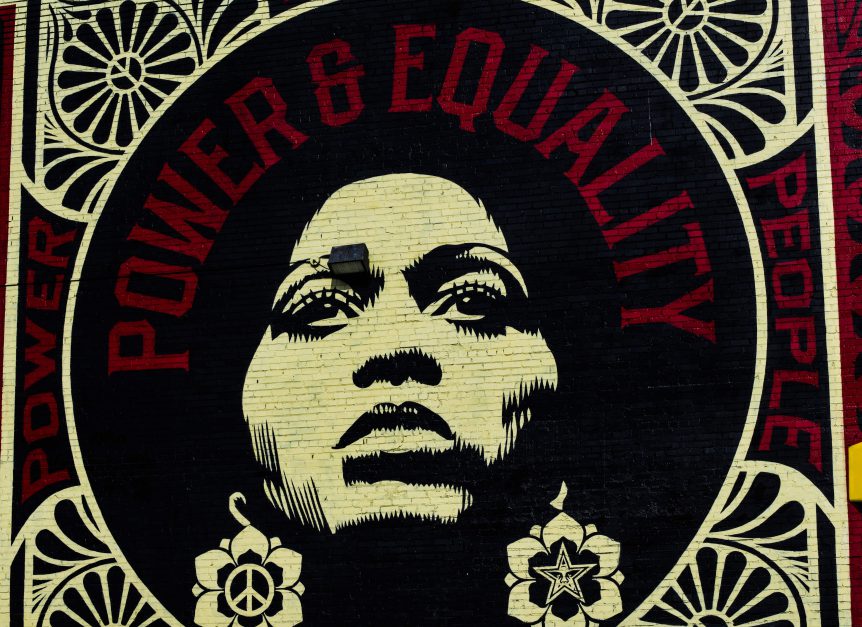With the male dominant society of ours, they were times were women were never assumed to be a person with in intellect. Women were only treated as a slave for men but with the passing of time the country has gradually evolved to be a better place for women. Several enactments were made by the parliament for granting of equal status of women with men. This article deals with exclusive statutory provisions for gender equality.
Constitutional Rights
Indian Constitution has given an equal footing of women with men. Fundamental Rights have been the first and foremost rights given to women for the removal of discrimination as the weaker sex. One of the reasons for the incorporation of provisions of gender equality in the constitution was in the olden day’s women were not allowed to go out of their houses because of the society’s orthodox thinking. Article 14 of the constitution says that every person is to be treated equally before the law.
Article 15 of the constitution says that “Prohibition of discrimination on grounds of religion, race, caste, sex or place of birth.” Therefore it could be clearly understood that there can be no discrimination made by anyone on the grounds of sex or gender. Article 15(3) also states that the state can make any laws or have any special provision for the protection of women or child.
Article 16 says that there must be “Equality of opportunity in matters of public employment” and Article 16(2) says “There must be no discrimination on any citizen based on religion, sex, caste at the place of public employment” One of the reasons for incorporation of Article 21 in the constitution was because in the olden days women were burnt alive on the death of their husband i.e. Sati.
So, therefore, Article 21 says “No person shall be deprived of his life or personal liberty”. Article 39(a) says that” both men and women have the right to adequate means of livelihood” and Article 39(d) says” that men and women are to be paid equally for equal work”.
Indian Penal Code
IPC have certain provisions which exclusively protect women from the offences of rape, dowry, stalking, molestation, sexual assault, violence against women physically or mentally, etc.
Equal Remuneration Act,1976
As per Sec 5 of the Act, the employer when engages employees either men or women for same work then they are to be allotted with same wages or equal pay must be given.
Maternity Benefit Act, 1961
Article 42 of the constitution says that “state shall make provisions for securing just and humane conditions of work and for maternity relief”. Under this act the women is entitled to take leave for her maternity and even is entitled to average daily wage.
Hindu Succession Act, 1956
Where prior to the Amendment Act, 2005, women whether married or unmarried were not entitled to have a share in the property of her father’s. But after the amendment Act of 2005, women whether married or not have right to demand share in the father’s property. This was one of the most welcome changes in the country
Hindu Marriage Act, 1955
Where previously there were child marriages solemnizing in India, where an adolescent girl was married to a man aged 40 or 50 years, there was a desperate need for a legal action to curb these illegalities as this lead to early pregnancy of the girl who has not reached the age of 18 years. Therefore, Sec 5 of the Hindu Marriage Act, 1955 gives conditions for valid marriage where one of the important conditions for a marriage to be valid is that the bride should have completed the age of 18years
i. Further abortion of a child is not legal in India and the sex determination of the child before birth is also illegal in India as our society was not always in favour of a girl child therefore the Parliament has made the test to determine sex of the child and abortion to be illegal.
2. Further, with the most recent change which is made in the year 2017 which is giving equal status for women in the navy, where the navy has granted women permanent commissions along with the male officers in the field of law , education, and naval.
Conclusion
There are many welcome steps taken by the Parliament for gender equality, yet there is a need for implementation of these laws with seriousness. It is the government who is supposed to take stricter actions if equality is denied to women. And equally the responsibility comes on the shoulder of those women who faces such inequality to raise their voice against the bias.


